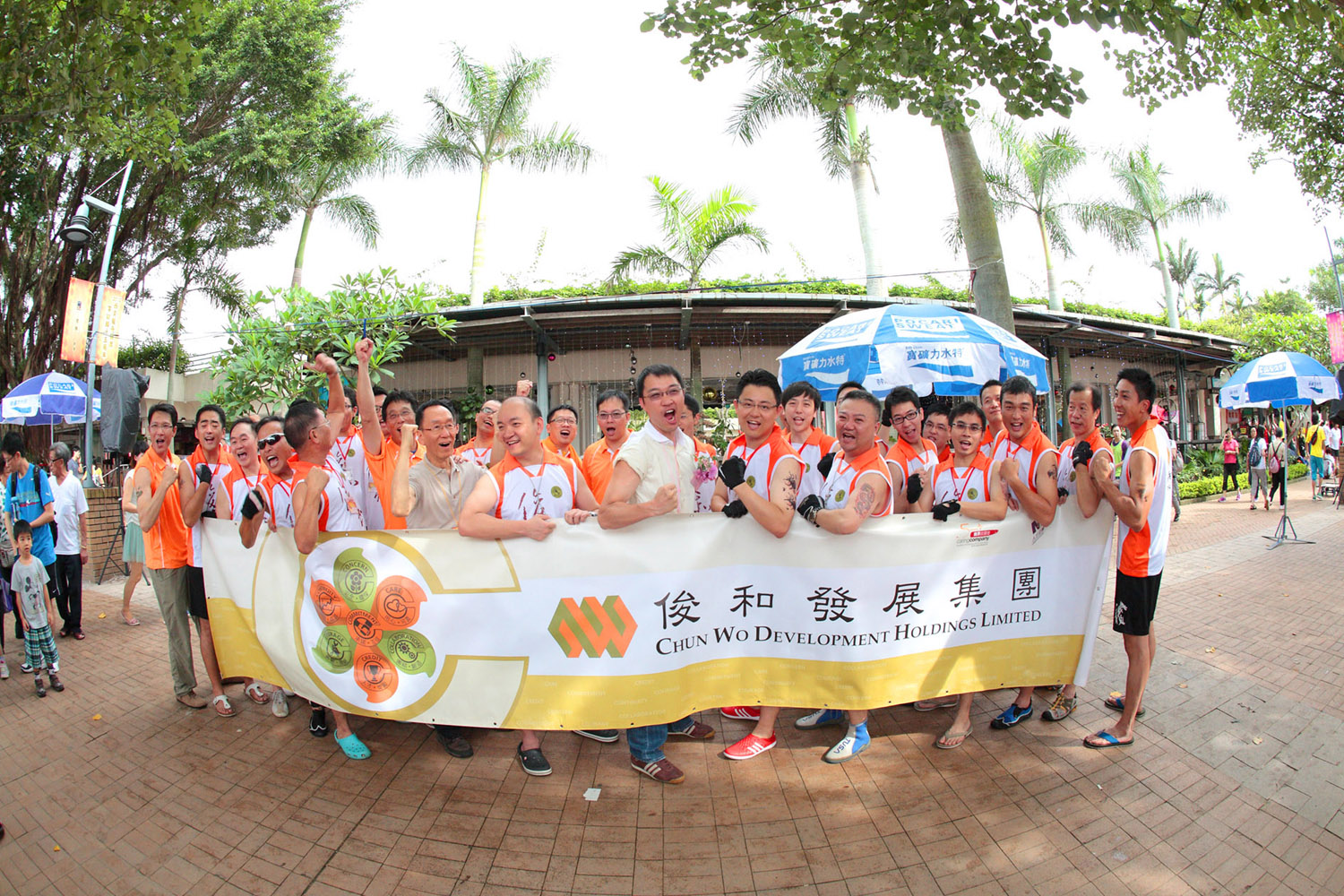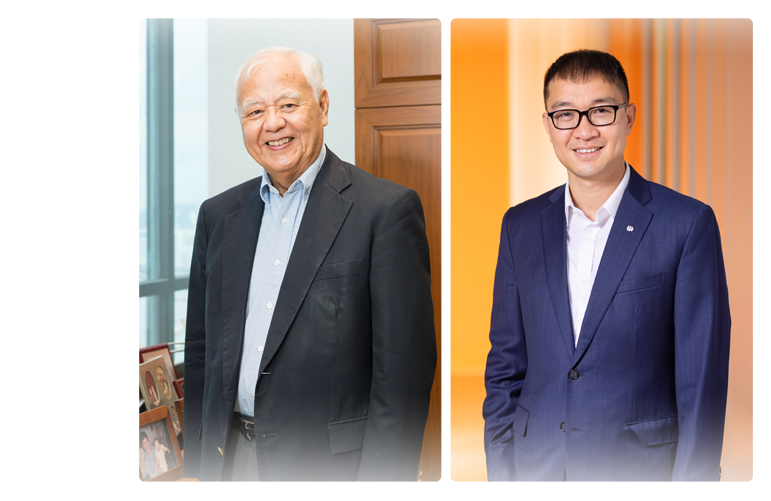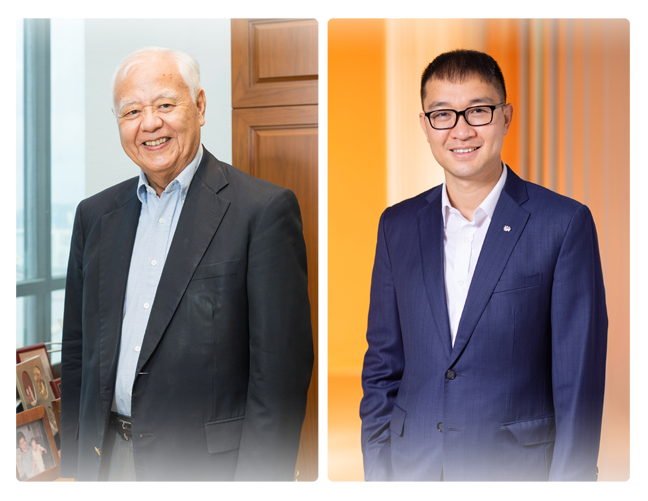Family business is a complex issue, but two members of the HKUST community are showing the world how it’s done. Both Roger King and Derrick Pang have navigated the disruption brought on changes in the economy, technology, and culture. In this feature, we dive into the nuances of how Asian family businesses have evolved, and what it takes to run a successful enterprise as technology reimagines the landscape.
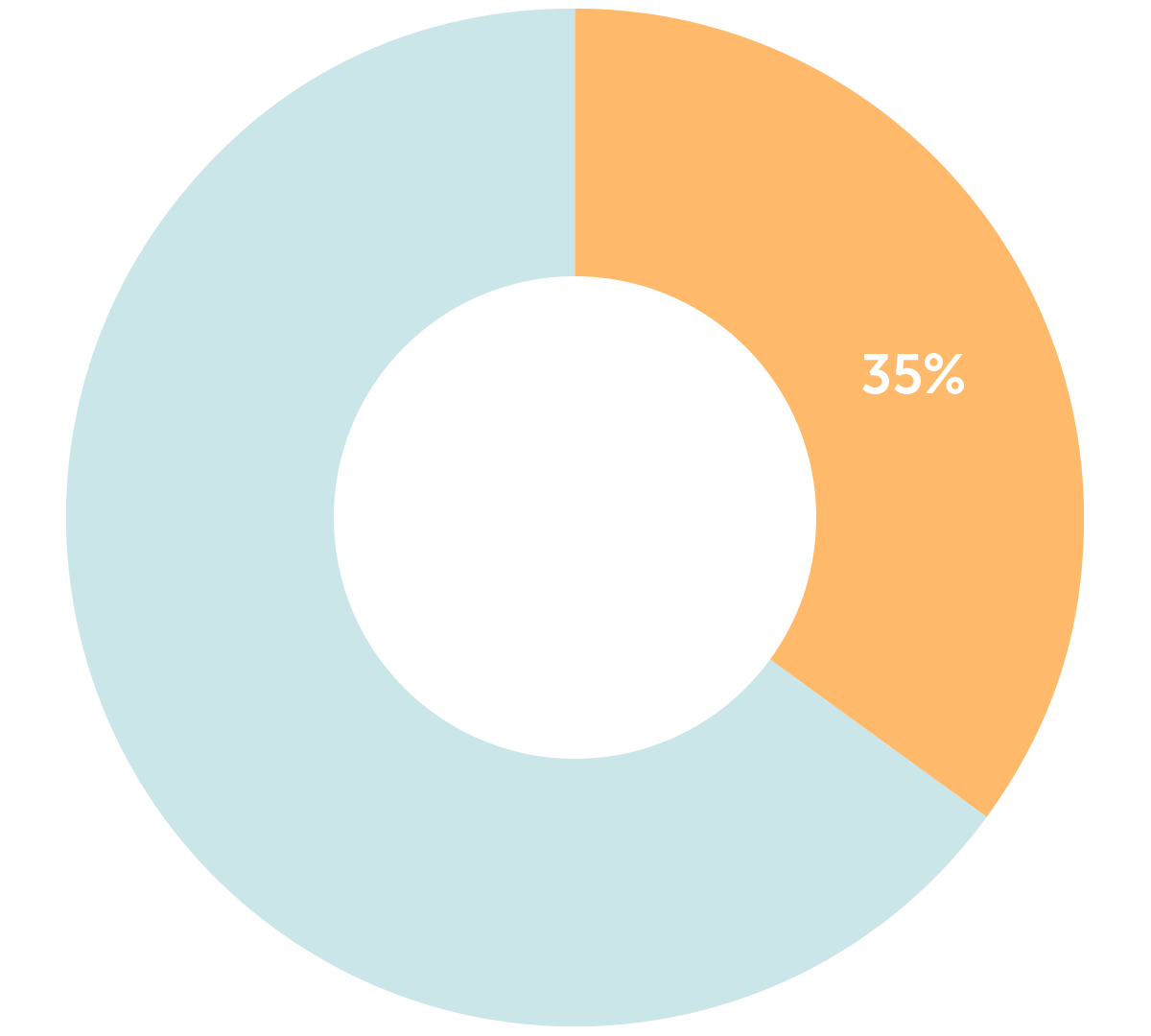
In the United States:
35% of listed firms in the Standard & Poor's 500 are family-owned
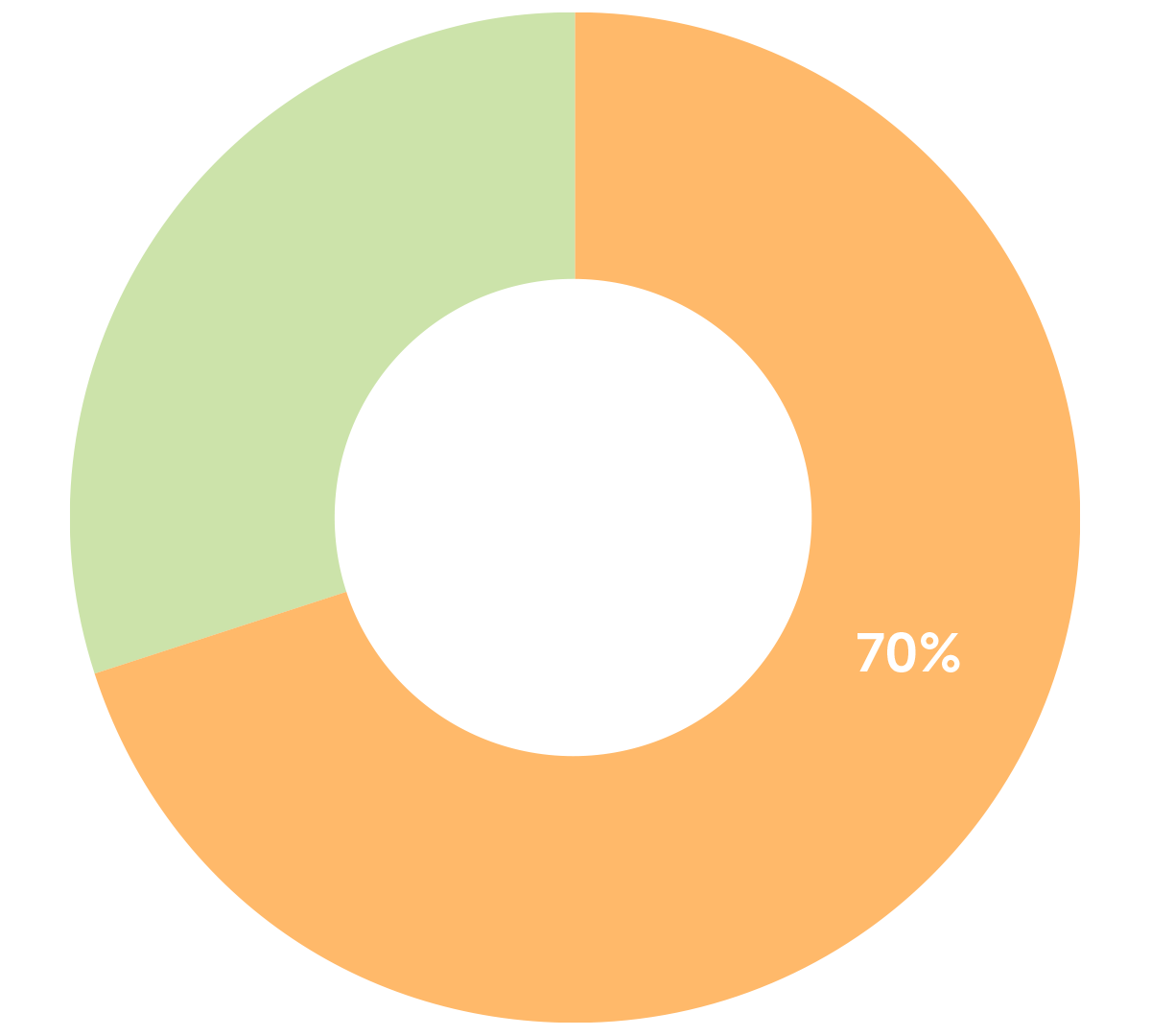
In HK:
Nearly 70% of listed firms are family-owned
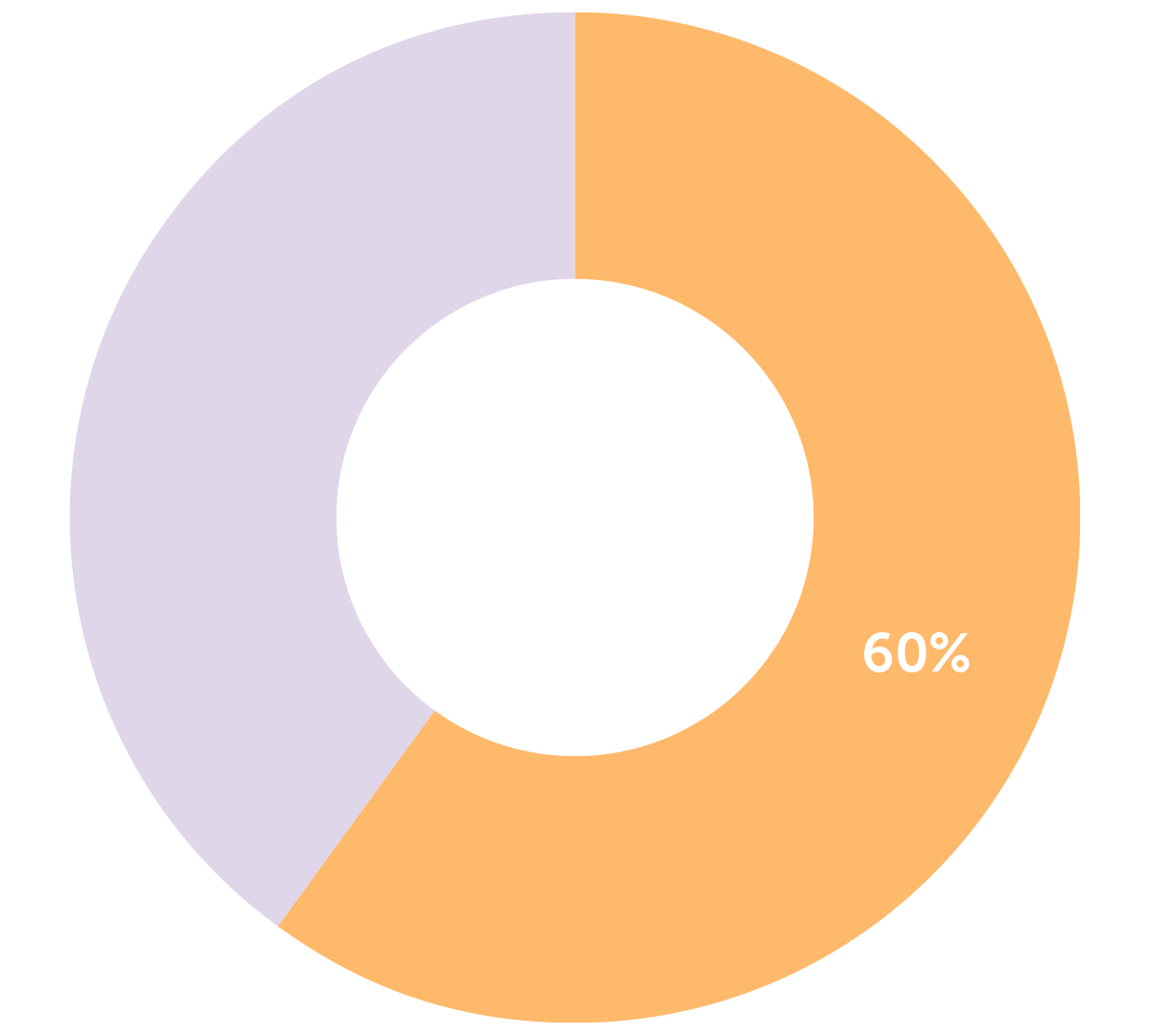
In the Mainland:
More than 60% of the GDP comes from family business
Family businesses don’t get the recognition they deserve despite being prominent worldwide. In Europe, they transcend centuries; in the United States, 35% of listed firms in the Standard & Poor's 500 are family-owned. Here in Hong Kong, nearly 70% of listed firms are family-owned, and more than 60% of the GDP in the Mainland comes from family business.
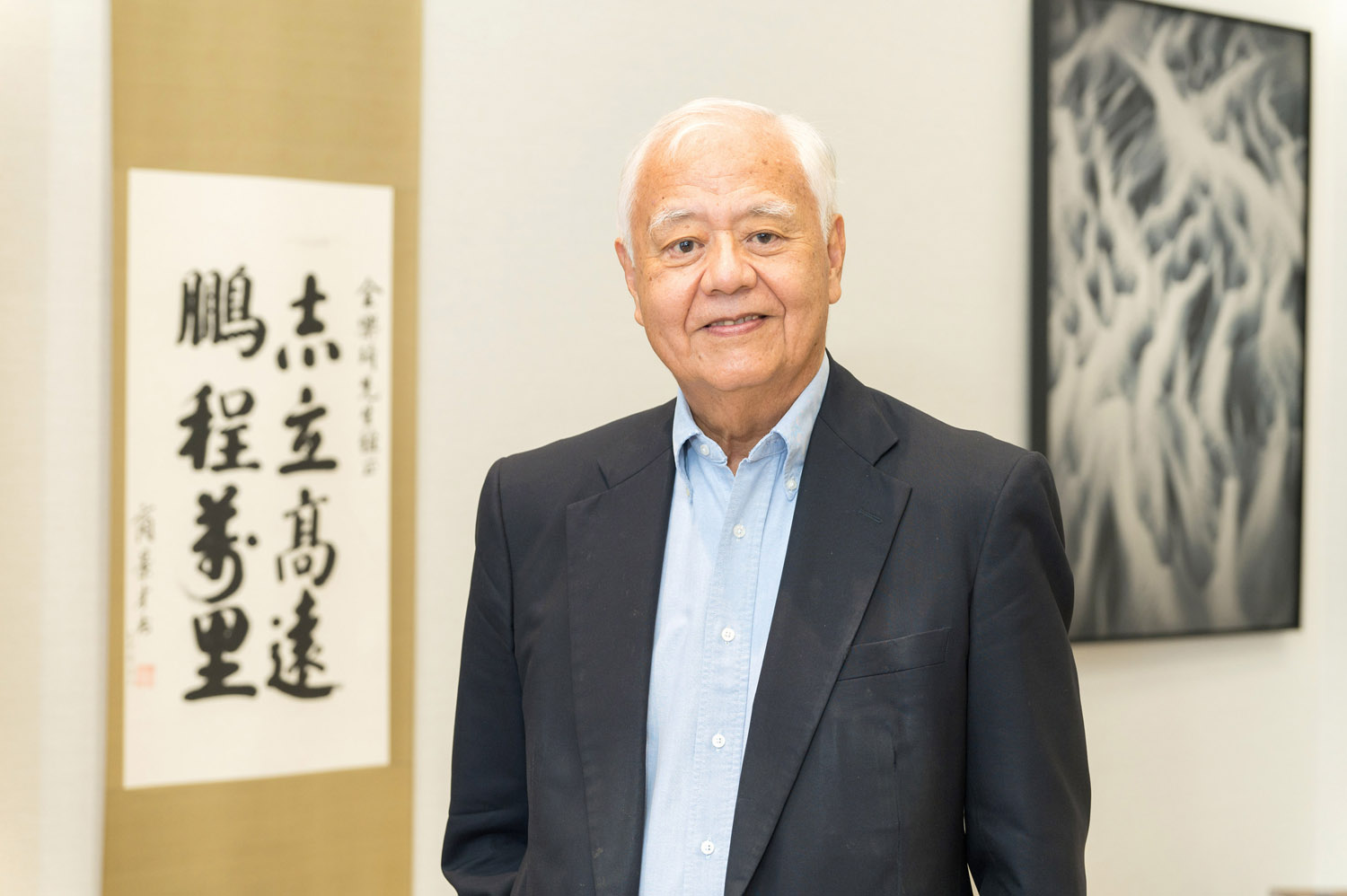
I have this concept of ‘CCKP’ — you need self-Confidence, Commitment, Knowledge and Passion. If you are missing any of these, your chances of success are slim.
Asia in the spotlight
The family office is in its infancy stage in Asia, but as the number of billionaires has grown, the need to pass on family wealth and values, all while maintaining harmony within the family, has become more crucial. This need has resulted in a dramatic increase in the number of Asian family offices that are impacting the future, all while family office research has continually neglected Asian perspectives. It’s a gap that Roger King (2006 PhD Finance) is determined to fill. Deeply dedicated to supporting HKUST over the years, Roger is a family business expert who surprises at every turn, and stands as one of our most illustrious in our community.
To start with, he is the most senior graduate to date in HKUST, and has been an Honorary Fellow since 2011. In addition to this, Roger presently serves as a Court Member and was previously a Council Member. He is also Adjunct Professor, Senior Advisor and Founding Director of both the Roger King Center for Asian Family Business and Family Office and the Thompson Center for Business Case Studies.
Roger brings a wealth of experience to the table with his illustrious CV that reads like a who’s who of Hong Kong business. Among other roles, he served as a Non-Executive Director of Orient Overseas (International) Limited and Chief Operating Officer of Orient Overseas (Holdings) Limited; Chairman of Pacific Coffee Limited; President and Chief Executive Officer of Sa Sa International Holdings Limited; President of Harvard Business School Association of Hong Kong; and Standing Committee Member of the Zhejiang Provincial Committee of the Chinese People’s Political Consultative Conference.
Surprisingly, in a previous life, he was a US Naval Officer, and has trained as a licensed pilot. “When I was growing up, I loved aeroplanes and ships, and wanted to be a naval pilot. In the end, my eyesight was not good enough for the Navy, and I ended up serving on the deck of an aircraft carrier as an electronics officer,” he says.
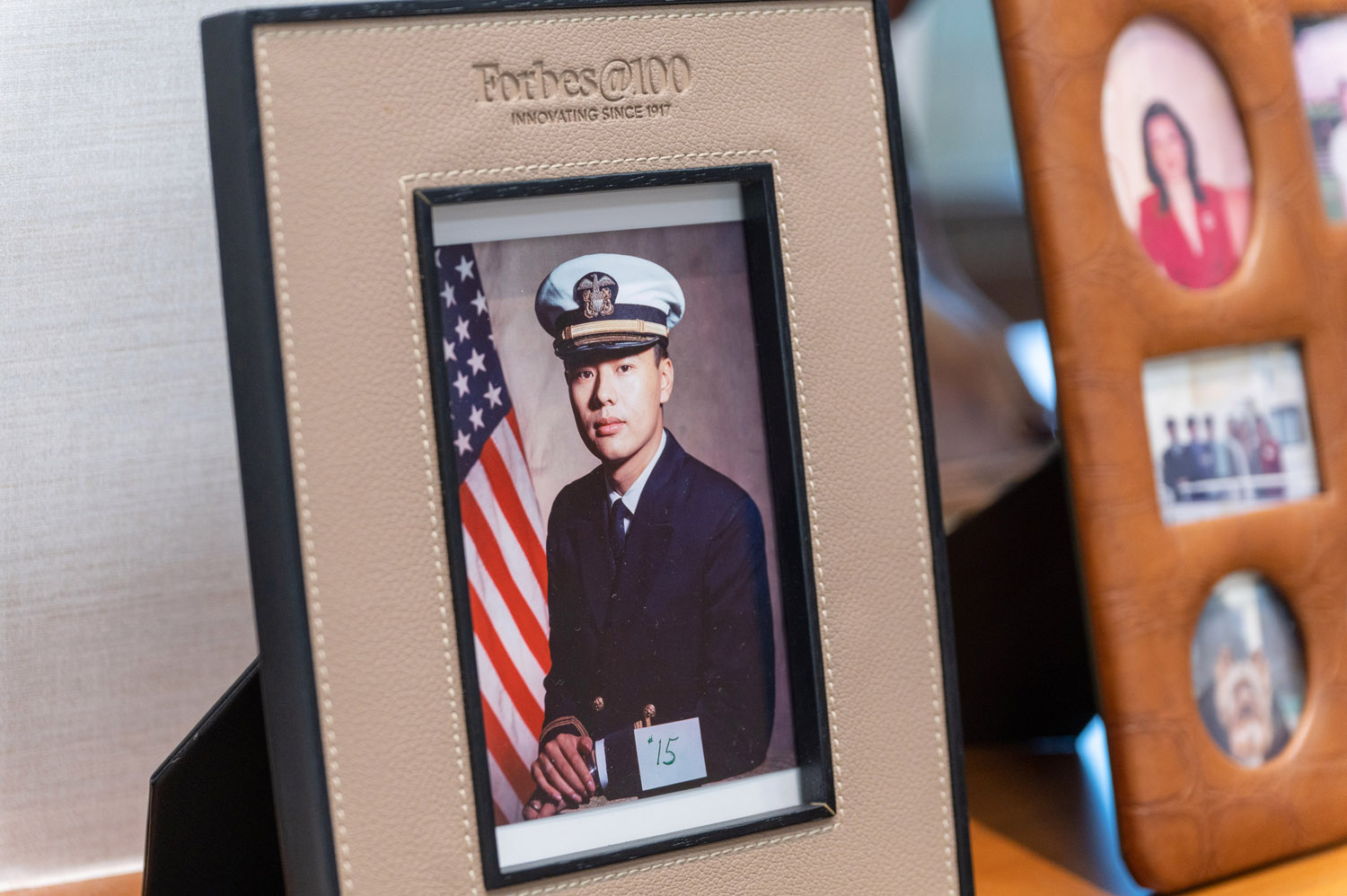
An expert in family business
Roger is known as one of the world’s leading experts in Family Business, Family Office, Entrepreneurship, Corporate and Family Governance. Following a generous donation to HKUST, the Roger King Center for Asian Family Business and Family Office was named in October 2022.
A key research arm of the HKUST Business School, the Center was established over a decade ago and has become the world’s premier research and teaching center in Asian family business, with added focus on family office, a fast-growing sector in Asia. Hong Kong is uniquely placed as a finance hub to take advantage of this emerging market, with the added bonus of tax concessions for eligible family investment management entities managed by single-family offices. The naming of the Center reflects its twin foci in Asian family business and family office, and its mission to bring together academics, practitioners, and policymakers in promoting quality development in both areas in Hong Kong and beyond.
Asia at the crossroads
For Roger, the future of Asian family businesses is fascinating and dynamic. “The younger generation wants to do things differently, they are better educated, have studied overseas, and many are even reluctant to join the family business because they seem traditional or even in sunset industries. With COVID-19 and Industry 4.0, things are looking at a radical shakeup, and the way things are conducted from now on will be different from the past. Even the concept of the ‘office’ is completely changed from before. We haven’t seen the end results, it’s a dynamic situation,” says Roger.
With change in mind, one of the concepts Roger came up with is “From Family Business to Business Family”, which is a hybrid concept that sees the traditional revenue streams fund new ventures. The result is a layered portfolio that reflects the old and new, allowing traditional business to modernize, while the new generation ventures can leverage on existing connections and resources. Another important concept is the ‘3Ps’ – preservation of Family Wealth, Harmony, and Value Systems, which is more crucial to Asian family businesses as the new guard takes over, and the next generation takes over.
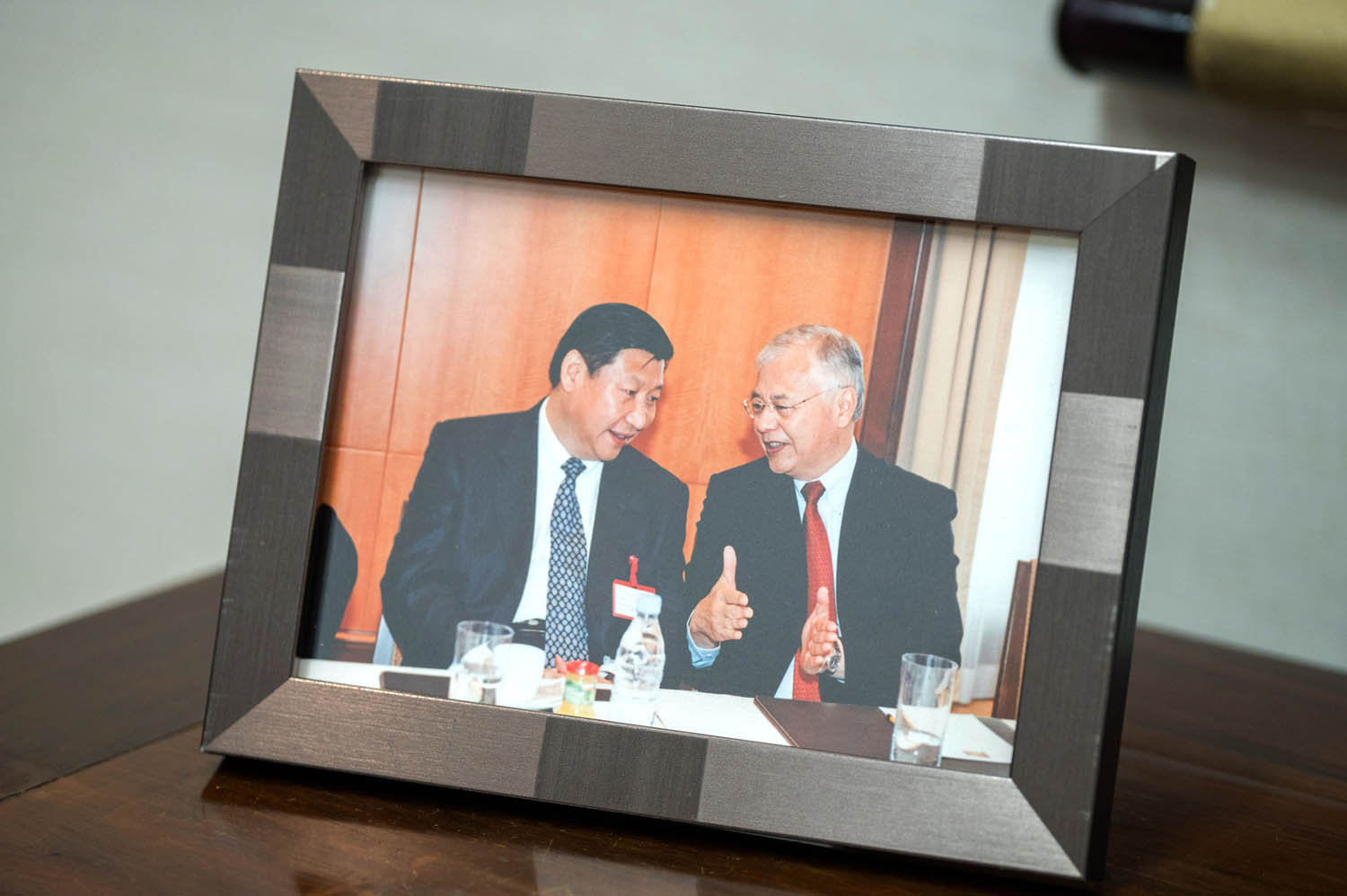
Firmly established in Hong Kong
A keen supporter of HKUST over many years, Roger donated generously in 2015 to our Alumni Endowment Fund to help provide a holistic learning experience to our students. On top of this, HKUST recently received a generous donation from his children Stephen, Daphne and Geoffrey to support research on Asian family business and family offices. Roger is the brother-in-law of Tung Chee Wah, HKSAR’s first Chief Executive, so he is uniquely placed to understand the ins and outs of business in Hong Kong.
Connecting to alumni
Another one of Roger’s missions is encouraging the next generation and helping alumni connect to HKUST. Having grown up in Shanghai and the United States, and spent the majority of his career in Hong Kong and Asia, Roger knows the importance of bridging cultures in the new economy. “The world is complex and yet more interconnected than ever – remember to link back to your alma mater, network with fellow alumni, and mentor our students too,” he says. For young people seeking to make it big, what would Roger advise? “I have this concept of ‘CCKP’ – you need self- Confidence, Commitment, Knowledge and Passion. If you are missing any of these, your chances of success are slim,” he says.
Working from the ground up
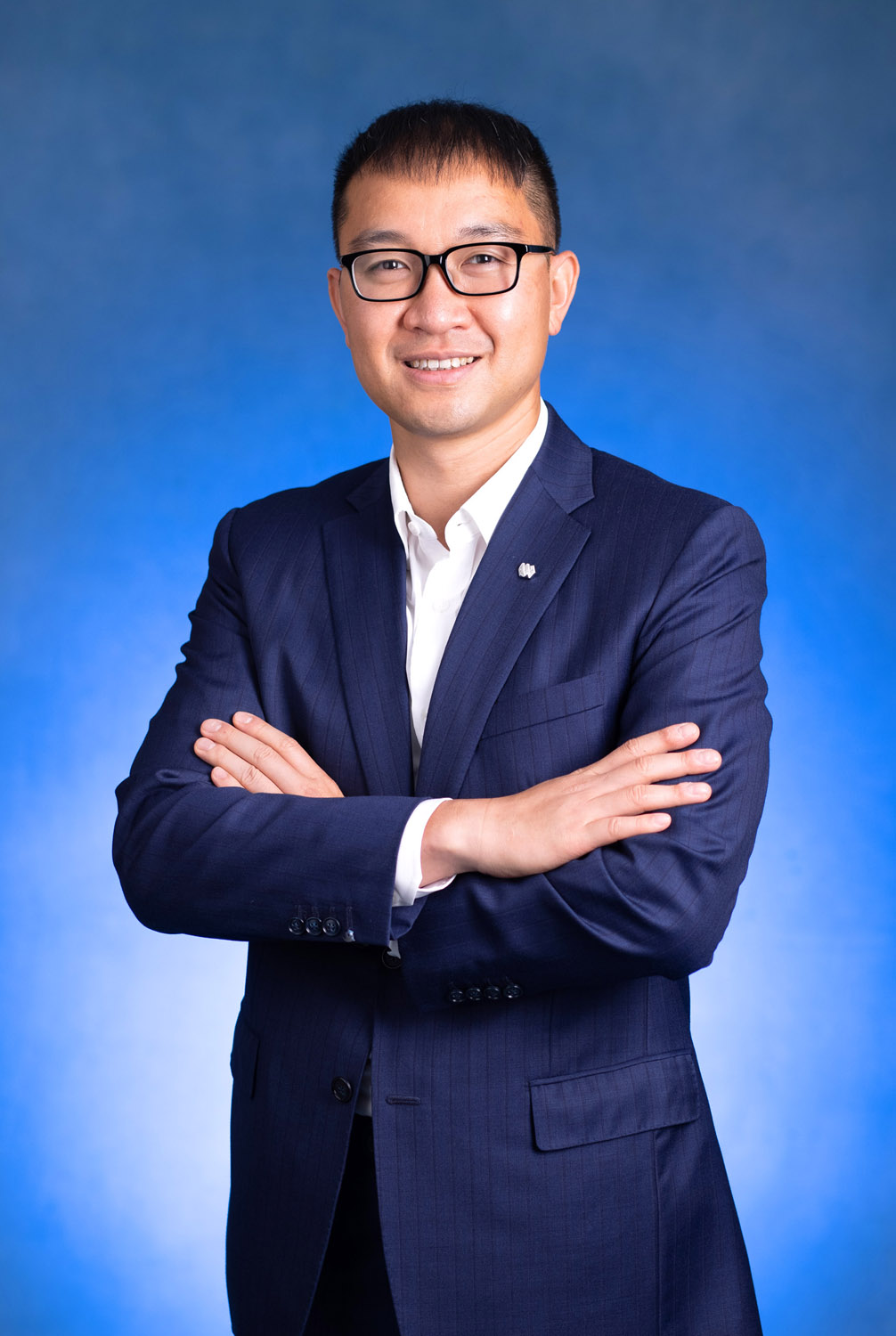
Derrick Pang (2014 PhD Civil Engineering) has been dedicated to a career across the construction industry. The Chief Executive Officer of Asia Allied Infrastructure Holdings Limited (previously known as Chun Wo Development Holdings Limited) not only has deep knowledge of the inner workings of construction, but also a very strong academic background. He graduated from the University of California, Berkeley in the United States in 1997 with a Bachelor of Science degree and obtained a Master of Engineering degree in Civil and Environmental Engineering from Massachusetts Institute of Technology, along with a master’s degree in Business Administration from The Chinese University of Hong Kong in 2007. Following this, came a Doctor of Philosophy in Civil Engineering from HKUST.
Diving into a PhD
So how did he originally decide to join the HKUST community? “My late father (Dr Pang Kam Chun, former CEO) didn’t have the chance to go to university, and this remained one of his unrealized dreams,” says Derrick. “At the same time, I have always been inspired to learn more and always wanted to complete the ultimate – a PhD. I had lunch with a professor, who recommended HKUST with its reputation for being ‘hardcore’. So, being one who always loves a challenge, I decided to go for it and chose HKUST,” he adds.
We need to transform culture, making small changes over time and create a snowball effect where eventually the whole company is a new and refreshed entity.
Arguably equally impressive is his more than 20 years of geotechnical design and construction experience in Hong Kong and the United States, the country of his birth. Having joined Chun Wo Development Holdings Limited (now known as Asia Allied Infrastructure Holdings Limited) in 2001, working his way to the top, he has served as a member of the Construction Industry Council; advises on the Aviation Development and Three-runway System Advisory Committee; is a Non-Executive Director of the Insurance Authority and was appointed as Justice of the Peace by the Government of the Hong Kong Special Administrative Region.
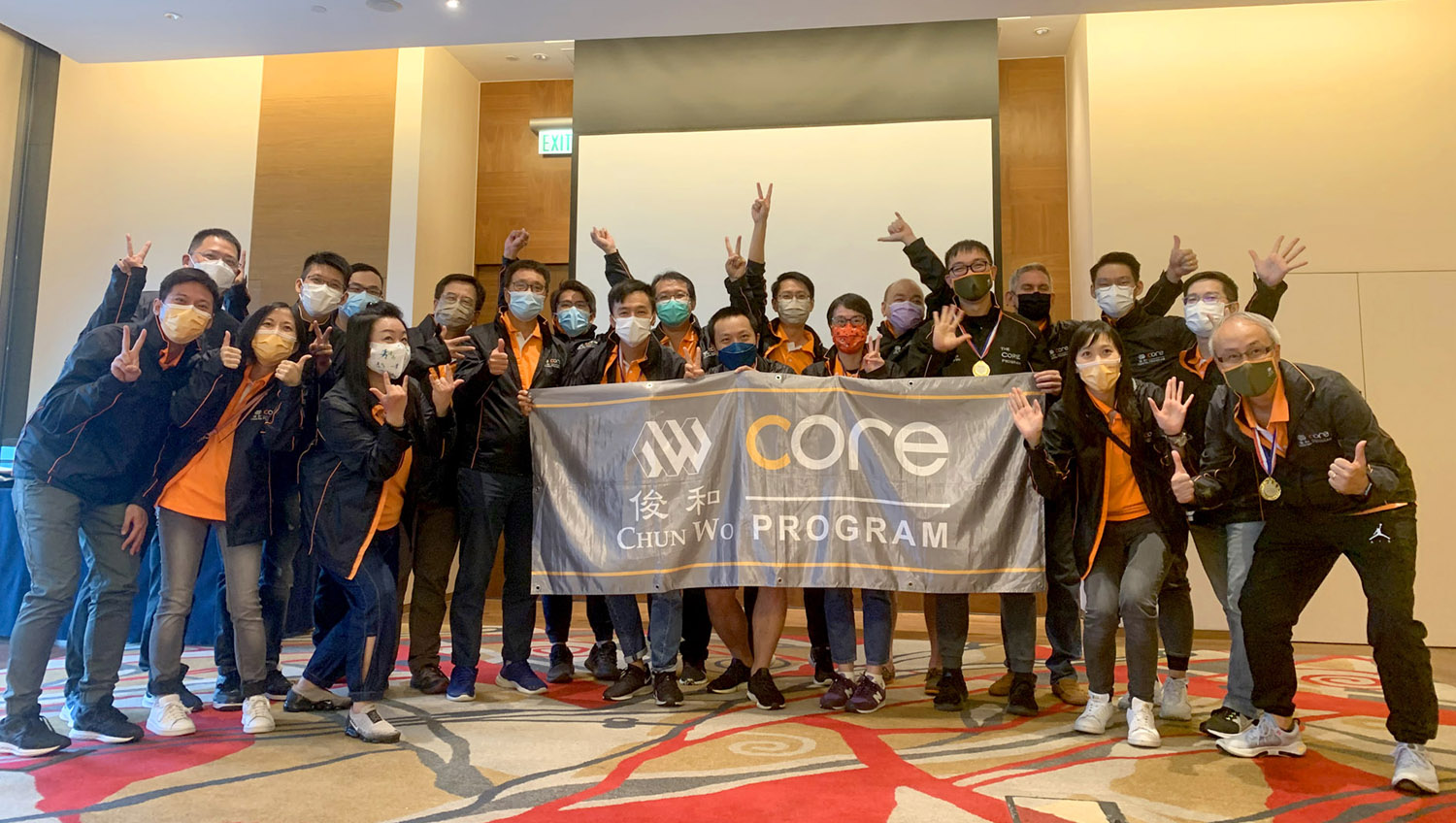
Starting from zero
But it hasn’t always been smooth sailing for Derrick. After his undergraduate studies, he stayed in the United States for his master’s degree and worked at a consulting company. He came back to Hong Kong after his mother asked him to return, and having realized he had been in the United States since he was 14 and was missing out on spending time with the family.
“My father put me on site immediately as an Assistant Project Manager working on the Tin Shui Wai West Rail Project. I was segregated and not given responsibility initially, but I got involved and earned the trust of colleagues, and knew what was going on, so I took on projects like drainage, traffic diversions, pipe works, and other initiatives that, shall I say, lacked in glamor. It was challenging, everything was new to me,” Derrick says.
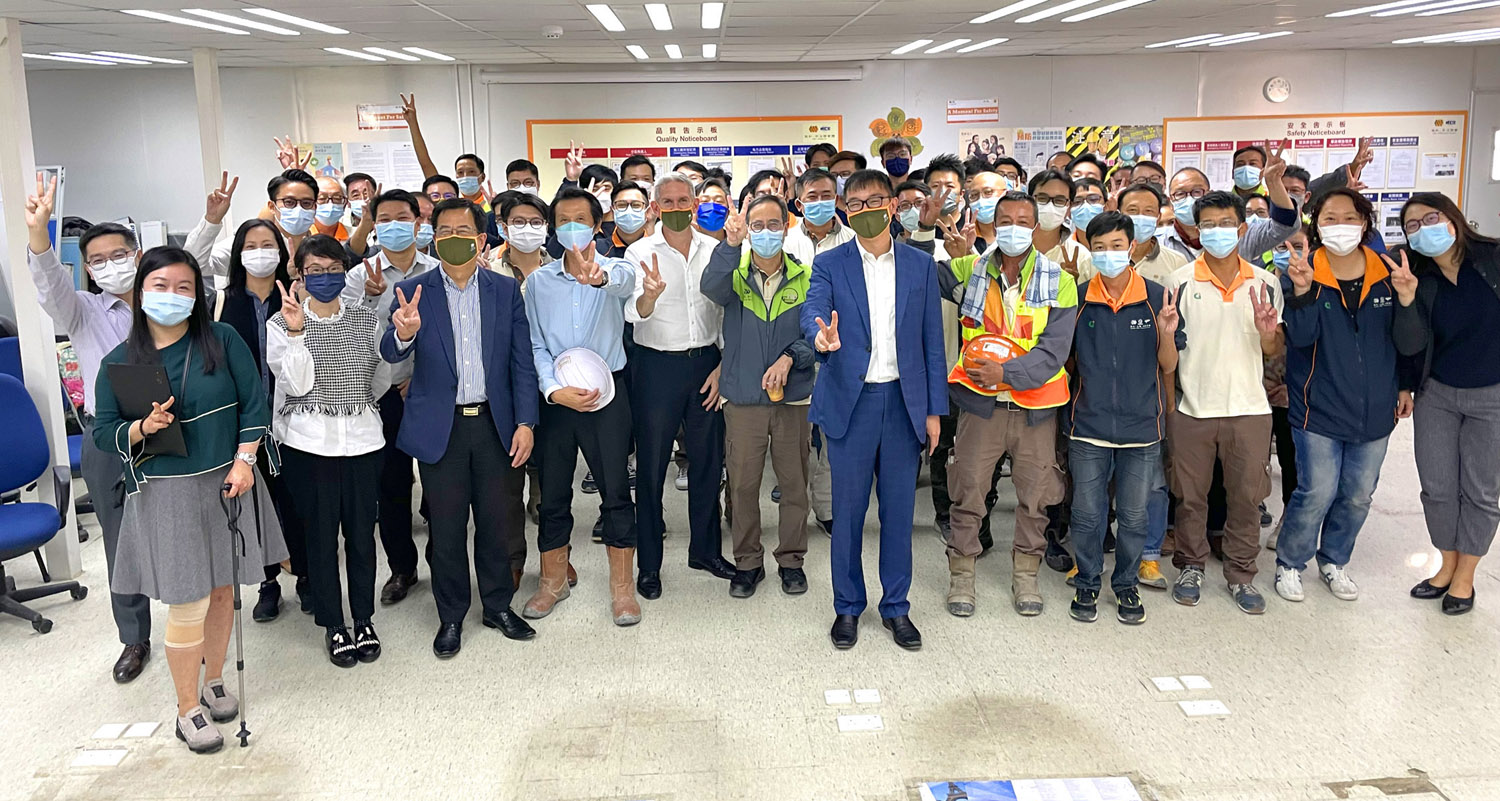
Becoming a leader
Perhaps seeing his own future within the business, he built a network among frontline colleagues and construction veterans on a range of projects across Hong Kong, rolling up his sleeves, getting his hands dirty, and forging himself as a leader of laborers and workers of all disciplines. All this work on projects including civil engineering, infrastructure, and luxury housing building, where he managed contractors and sub-contractors. Soon, with a track record for doing everything from laying gravel to cleaning sewage, he shed the “heir” reputation and earned his role as a leader years before becoming CEO in 2017.
Personal tragedy
That path was cemented when his father unexpectedly passed away in 2010. Before that sad moment, Derrick was already forging a role handling “difficult and potentially money losing projects,” so he was in many ways uniquely placed to eventually become CEO. Indeed, he was on this path while pursuing his PhD at HKUST, which he admits proved “arduous, but I was determined to finish as my commitment to my father, and professor’s encouragement and support,” he says.
Aside from gradually forging his own path in the company, he extended his ‘firefighting’ skills to tackling a number of issues that have plagued the construction industry. These include labor shortages, downsizing in hard economic times, company reputational damage, and lack of talent within the construction industry as a whole. “Aside from my construction experience, I have always had an intellectual side. Within my company, I have taken a firm role in HR and administration, developing the Elite Program [Management Trainee Program], selecting the best and the brightest from universities to look at the company from a macro point of view, encompassing safety, commercial and environmental angles,” Derrick says.
Talent and technology
The CEO has also subsidized continuing education for middle and senior management, and promoted the construction industry in universities, to help modernize the industry in Hong Kong. A major tension within family business is how to transition from the old to new. Derrick has therefore always dedicated himself to adopting new techniques to his business and other interests. It’s a reason he founded crowdfunding platform Lifewire.
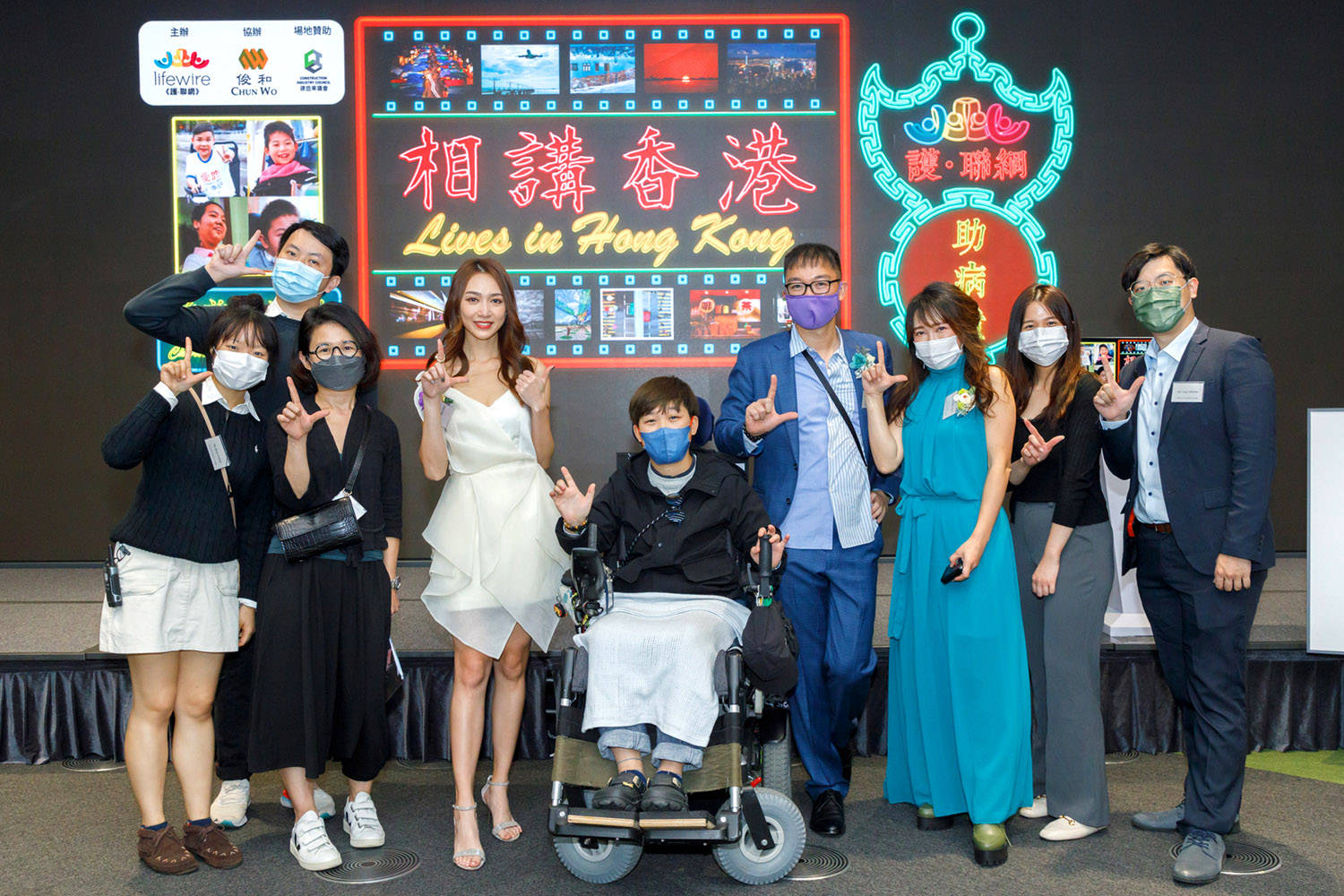
Having witnessed the popularity of crowdfunding overseas, Derrick decided to adopt it for his charity efforts in Hong Kong, becoming the first Hong Kong-based crowdfunding platform to support children’s health and medical needs in 2014. “When I was young I loved to do charity work, and have always kept this ethos in my mind, and really decided to push this when my father passed away,” Derrick says.
“We are evolving from a traditional company to an organization built on modernization and decentralized management systems. People should be able to make their own decisions, and we tap into the talent rather than the centralized person. To do this we need to transform culture, making small changes over time and create a snowball effect where eventually the whole company is a new and refreshed entity,” Derrick says.
